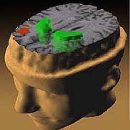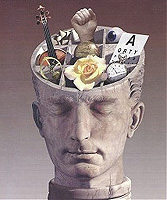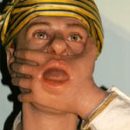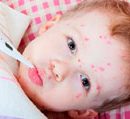Neuroses of obsessive states are associated primarily with increased anxiety of children. The level of anxiety is high always, but increases in situations, to anticipate the outcome of which is difficult.
Content
Causes of anxiety
Often such neurosis develops in children, the upbringing of which is contradictory. For the same act he can get punishment or encouraging — Depending on the mood of the adult. When mom has a good mood, she comes from work, says: «Let's quickly remove the toys and let's walk, I will eat ice cream!» If her mood is bad, it is pounced on a child from the threshold: «I'm tired like a dog, you have everything scattered here!» It's hard to develop stereotypes of behavior. He can not understand what approve, and what is not significant adults. The same happens in families in which the grandmother is immensely pampers the child, the father is trying hard measures «Rail a real man», and mother cares about «Harmonious identity development», Tax Child on Mugs.
Unpredictability of the situation — here is a frequent cause of anxiety. Attempts to predict what awaits makes believe in signs, invent your own («If the first car, which will pass by, will be bright, mom will not swear today, and if dark...»). Elevated Alarms» Children often happen in families having a secret. For example, parents are in the process of divorce, but hide it from a child, keeping together quite correct relationships, or the child does not talk about the seriousness of the disease of some of the loved ones. In any case, the child feels the oppressive atmosphere in the family, as a rule, understands that he does not say something, worrying for the future of family well-being and their own.
Obsessions can manifest itself in the emotional sphere (obsessive fears), in the field of thinking and in the field of movements (obsessive rituals). Various combinations of manifestations of innocents in different fields are possible. Combines all obsessions critical attitude of the patient to them, the misunderstanding of their psychological meaning, his vain attempts to cope with them. Understanding the unfoundedness of fears, the stupidity of obsessive thoughts, the absurdity of rituals, the patient is struggling with them, but the more intense the struggle, the stronger anxiety, the more pronounced their manifestations.
Cut out alarm
To cope with anxiety, baby — often at the unconscious level — forms rituals, the meaning of which does not understand and cannot explain to adults. Psychotherapist can help understand them.
Rituals can be associated with aggression aimed at themselves (autoagression). These include: nail cloaking, twisting and pulling hair, ripping burstages, scratching and combing skin, breaking lips, lungs and not very blows that are applied to both. So the child seems to punish himself in advance. It unconsciously hopes that after that fate (God, providence, nature, the case) will be more easily, everything will end safely (the task on the control will decide, the hooligans are not marked, the mother will not notice a broken cup and T. NS.).
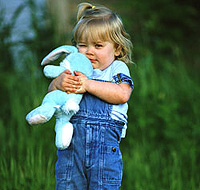 Other rituals can be associated with the attempts of patients to resist the alarm, demonstrating their strength. Children are unconsciously trying to scare the danger, to overcome her. These rituals include obsessive spitches, devout, twitching heads, tapping on subjects and T. NS.
Other rituals can be associated with the attempts of patients to resist the alarm, demonstrating their strength. Children are unconsciously trying to scare the danger, to overcome her. These rituals include obsessive spitches, devout, twitching heads, tapping on subjects and T. NS.
The next group of rituals combines the patient's attempt to oust anxiety, causing pleasant emotions. These include the obsessive licking of the lips, sucking the tongue, poking in the nose, stroking themselves, sometimes erogenous zones, and other actions.
Sometimes rituals are actions that once allowed the patient to cope with the difficult situation that led him to success. They are distinguished by a wide variety and, as a rule, analogicity. For example, one of our patient during school competitions on the run stumbled, but the first reached the finish.
Since then, it unconsciously stumbles not only during sports competitions, but, for example, when it goes to the exam, when it's late home and gazes: «Will scold or not?»
Often it is rituals that help patients to cope with obsessive ideas or fears. Obsessive fears are very diverse. BUT. AND. Zakharov (1998) believes that some of them (the fear of the darkness, the fear of loneliness, the fear of the closed space) may be associated with anxiety, tested by a child even during the period of intrauterine development and in the process of childbirth.
Obsessive ideas are also diverse. They can be quite harmless (obsessing the ass recall someone's name, obsessing the melody), and can cause very strong experiences, negative emotions. In children and especially adolescents, there are often so-called hard thoughts, as a rule, sexual content (obsessive desire to swear by mat, to represent their parents during sexual intercourse and t. NS.).
Can cope with the manifestations of neurosis of obsessive states, only to reveal the cause of the alarm and, if possible, eliminating it. The fight against the symptom without understanding its origin and the essence rarely leads to a positive result, and sometimes worsens the patient's condition. For example, when a mother constantly wipes a child, a ricking nails, his anxiety increases, self-esteem decreases. Chances to cope with «Harmful habit» With this approach almost no. That is why many obsessive symptoms do not pass over the years.


